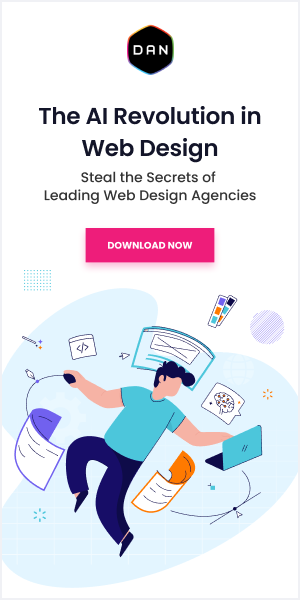
Three Tips for Using AI Efficiently and Securely
We have heard about AI for quite some time, but only now the talks and predictions have materialized into something concrete.
OpenAI’s ChatGPT – an AI-powered chatbot – was released in November 2022 and had 100 million users by January 2023, making it the fastest-growing app in history. ChatGPT suffered a data leak three months later due to its own error. The leak sparked a hot debate regarding the safety of the service and the potential harm it could cause. In reality, ChatGPT is unlike any other software. It requires access to an outstanding amount of data for its machine learning (ML) algorithms. Naturally, the question arises whether it is capable of protecting that data.
AI Security Issues
It’s crucial to understand that AI-powered technologies are by no means secure by design. As groundbreaking as they are, the risks can outweigh the benefits in their early stages.
Current AI security issues primarily fall into two categories: information security and privacy, and cybersecurity.
As mentioned previously, AI-powered services require unprecedented access to huge data repositories. Without it, machine learning becomes obsolete as it lacks information for accurate predictions or data outputs like articles, software code, personalized recommendations, and such.
Not even half a year out in the open, and ChatGPT has already demonstrated a privacy breach. Simultaneously, as Samsung employees can confirm, trusting this chatbot with your company’s confidential data might be the worst idea.
Hackers have been looking for an entrance to corporate secrets for decades, and artificial intelligence software could be it until it is adequately secured. A significant issue is the novelty of these services. It’s positioned on the bleeding edge yet requires access to the most critical data.
From the cybersecurity perspective, AI-powered technology is already used for nefarious purposes. Forbes reports that we must prepare for a huge increase in Phishing scams and their quality. Language barriers often ruin Phishing attempts, with cybercriminals struggling with the English language and online translators doing a mediocre job at best.
Current AI text generators and translation platforms like Centus produce nearly perfect results. Of course, so far, they cannot replace human-written or creatively translated text. On the other hand, Phishing is often aimed at more senior Internet users that aren’t as sceptical about emails as younger generations. A grammatically correct text with their name and surname and a few bits of personal information might just be enough to convince them to click on an infectious backlink.
With all this in mind, we will outline three tips for securely using AI in its current state. After all, the benefits it provides are outstanding, so here’s what you can do to be on the safe side.
1. Don’t Cut Human Oversight
One of the main principles of AI technologies is automation. Using ChatGPT to generate content is acceptable; however, publishing it without human oversight is risky.
ChatGPT has proven numerous times it can provide wrong answers and stand by them. CNET’s attempt to publish 100% AI-written content resulted in them making hasty fixes to five inaccuracies. Mathematical errors don’t convey trust but imagine what would happen if such texts were published on healthcare news sites.
Using AI software to generate content is an effective way to produce ideas or overcome small writer’s block. However, depending on the text to provide you with the information is risky. Every fact must be double-checked, and the same applies to software code or Bing Chat answers.
2. Be Mindful About Cybersecurity
You should be particularly mindful of improving cybersecurity if you decide to use machine learning technologies to improve your business operations. Giving them access to the company’s confidential data puts all eggs in one basket, for lack of a better expression.
It’s essential to verify the security of the service. In reality, you will most likely not get an accurate answer, as it is too early to discuss AI tools’ security in this infant stage.
Moreover, these tools are just as susceptible to common hacking methods as any other software. If you fail to secure your AI tool with a strong password, cybercriminals will brute force it no harder than a Spotify account. Furthermore, such tools can have zero-day vulnerabilities. Some developers opt for an open-source model, exposing software code to the public, which in turn scrutinizes it for errors.
ChatGPT is open-source, and if there are vulnerabilities (and the chances are very high there are), you will have to trust OpenAI to fix them. Until then, upgrading your cybersecurity protocols is best if you decide to trust this tool with confidential data.
3. Protect All Data
AI-powered tools require a lot of data, which requires exceptional oversight. First of all, this data has to be stored somewhere. Large businesses can afford to build their own secure server structure with expensive firewalls and real-time risk assessment. Encrypting the servers is mandatory to keep them secure and to adhere to GDPR or CCPA protocols.
Another method is to use Cloud storage solutions. Instead of spending extra on your own server structure, you can pay for a third party to host your data on secure Cloud servers. A significant benefit is data availability, which you can access anytime you have Internet access (considering your Cloud service provider maintains a required uptime).
However, you are still trusting data with a third party. That’s why verifying their encryption protocols, physical server access security, and data backup rules are essential.
It’s even better to upload confidential data encrypted, with decryption keys stored locally on your trusted device. No one else can access the data; you retain exclusive access rights. If you decide to access Cloud storage outside of workplace network security, use a VPN to apply additional encryption to online traffic, preventing third-party online surveillance.
Conclusion
AI technologies are here to stay, providing outstanding automation and data analysis features. However, as with most groundbreaking technology, it’s imperative to double-check before putting it to use.
Services like ChatGPT have already demonstrated security issues, but if you arm yourself with sophisticated cybersecurity software, you can significantly improve their safety.




















